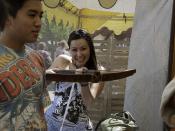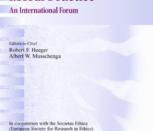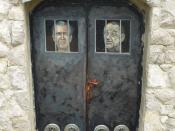"The controversy between Faith and Reason, as it became manifested furing the period from 1200 to 1600, was the naturals outgrowth of what was indeed a scientific revolution in Europe. To have assumed that the inquisitive nature of man would forever be bound by faith alone was indeed erroneous". I agree with this quote based on the theory that the scientific revolution in the Renaissance unbounded the theory that faith was the only path to true ritcheousness. In addition, the University System helped spread the knowledge of these great minds, thus allowing man to learn without having to become a priest and having to learn through the church. "The medieval university was a "community of scholars" with the authority to confer degrees." With this knowledge, the scholars would discover knew things and find out the truths of life, instead of having to listening to the church. The church had been wrong before, such as when Galileo discovered that the earth is not the center of the universe, but revolves around the sun, which is the center of the universe.
The church's response was "The first proposition, that the sun is the center and does not revolve around the earth, is foolish, absurd, false in theology, and heretical, because expressly contrary to only Scripture... [and] the second proposition, that the earth is not the center but revolves about the sun, is absurd, false in philosophy, and, from a theological point of view at least, opposed to the true faith." In addition, the discovery of Humanism defied the church. Humanism was the variety of ethical theory and practice that emphasizes reason, scientific inquiry, and human fulfillment in the natural world and often rejects the importance of belief in God. The father of humanism, Petrarch, thought that man qould break away from the...


